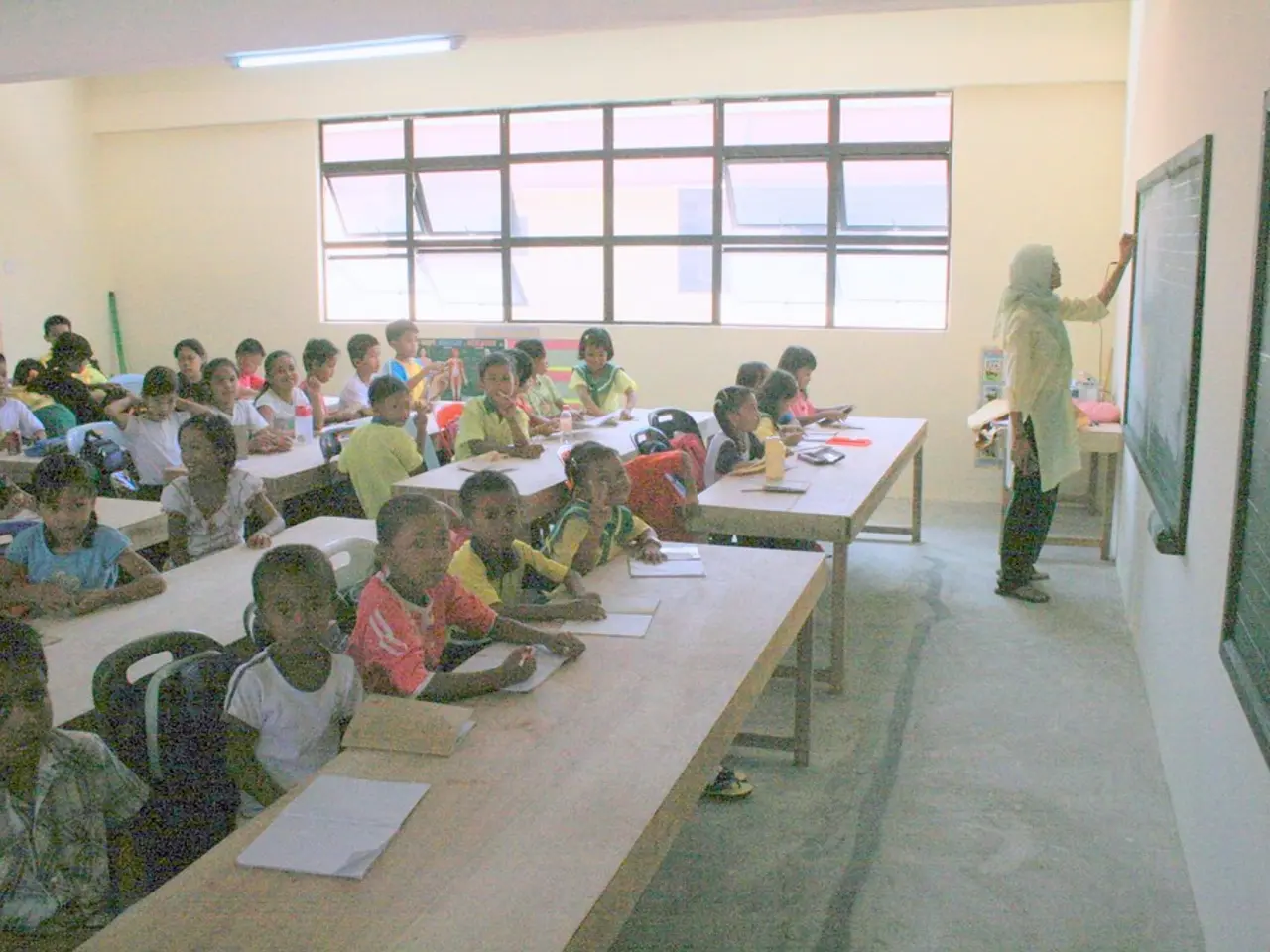Techniques for Encouraging the Development of Self-Discipline Capabilities
In the realm of early childhood education, the development of self-regulation skills is of paramount importance. These skills, which encompass a child's ability to manage their emotions, behaviours, and thoughts in various situations, serve as foundational elements for lifelong learning and development.
Educators play a pivotal role in nurturing self-regulation skills among young children. By creating supportive learning environments, modelling self-regulation, and incorporating self-regulation concepts into the curriculum, educators can help children develop enhanced emotional control, improved attention span, and greater social competence.
Supportive learning environments are established by creating structure and predictability, incorporating flexible spaces, and modelling self-regulation strategies. Incorporating self-regulation in the curriculum can be achieved through structured activities that promote reflection, self-awareness, and goal-setting.
External factors such as family dynamics and socio-economic conditions can impact a child's ability to develop self-regulation skills. However, effective strategies for promoting self-regulation skills include modelling coping techniques, establishing predictable routines, and using visual supports like schedules to reduce anxiety and enhance focus. Teachers can also guide children through problem-solving processes and help them develop personalised self-regulation plans that include self-monitoring and coping strategies such as deep breathing and counting to 10.
Fostering self-awareness through activities like daily emotion check-ins, body signal recognition, sensory exploration, and facial expression identification helps children connect with their emotions and physical cues, enhancing their ability to self-regulate. Building routine and behavioural consistency, practising impulse control through delayed gratification exercises, role-playing social scenarios, and using positive reinforcement further support the development of self-regulation. Emphasising social regulation by teaching active listening, conflict resolution, empathy, and perspective-taking enhances children's emotional balance and interpersonal skills.
For children with autism or special needs, incorporating visual supports, structured routines, sensory integration, mindfulness practices, and evidence-based interventions (ABA, social stories, cognitive-behavioral techniques) provides a comprehensive approach to developing self-regulation.
Promoting self-regulation skills enhances children's academic performance by improving concentration, increasing compliance with classroom rules, and enhancing problem-solving skills. The early development of self-regulation skills builds resilience, fostering a growth mindset crucial for navigating challenges throughout personal and academic lives.
Assessment of self-regulation skills involves direct observation, standardised assessments, child portfolios, and technology-based tools. Future research on self-regulation skills should explore diverse methodologies, examine the long-term impact, integrate technology, and study real-world case studies of successful programs.
Families play a significant role in children's self-regulation development, and educators can facilitate their engagement through workshops, guidance, and open dialogue. Strategies for families to reinforce self-regulation skills at home include implementing mindfulness practices and fostering emotional awareness and communication. Integrating technology in promoting self-regulation skills offers innovative opportunities through educational apps, online programs, and mindfulness exercises.
Examples of effective practices for promoting self-regulation skills include the "Incredible Years" program, mindfulness practices in preschool settings, and the "Second Step" program. Together, these strategies create a supportive environment that fosters emotional control, attention management, and positive social interactions in early childhood education.




